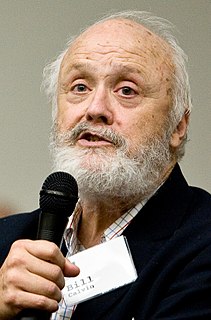A Quote by Jill Stein
The climate is not tomorrow. The climate is a year off or maybe 10 years off. So we have to be really clear that we're solving the crisis of economic insecurity at the same time.
Related Quotes
...the world needs to face up to the challenge of climate change, and to do so now. It is clear that climate change poses an urgent challenge, not only a challenge that threatens the environment but also international peace and security, prosperity and development. And as the Stern report showed, the economic effects of climate change on this scale cannot be ignored, but the costs can be limited if we act early
I have felt for a long time that the pathway to solving the climate crisis is through the building of a massive grassroots army of men and women who will go out there and win the conversation on climate, and persuade businesses, and universities, and towns to switch to renewable energy and to reduce emissions. And the big change from ten years ago is that people are way more receptive, not only to the message that we have to act, not only to the message that now we can act, we have the solutions now - that's the biggest change - but also willing to make a commitment that we will act.
Other ways of looking at the environmental or climate change stuff is to frame it in the context that it is simultaneously a public health issue. One out of eight premature deaths worldwide happens because of air pollution. The worst power plant in America kills 278 people a year and causes 445 heart attacks. So, when we improve air quality we improve our lives, and at the same time we improve the climate as well. We must see climate policy from this perspective and not as an abstract threat that may threaten our survival in 100 years.
The climate of Ohio is perfect, considered as the home of an ideal republican people. Climate has much to do with national character.... A climate which permits labor out-of-doors every month in the year and which requires industry to secure comfort--to provide food, shelter, clothing, fuel, etc.--is the very climate which secures the highest civilization.
The climate, financial and national security crises are all connected. They share the same cause: Our [the USA's] absurd dependency on foreign oil. As long as we need to spend billions of dollars each year to buy foreign oil from state-run oil companies in the Persian Gulf, our problems of a trade deficit, a budget deficit and a climate crisis will persist.
I have a sense of mission on this climate crisis, and I'm trying to pour all the energy I have into it. And I hope that I, along with others, can catalyze the emergence of real solutions to the climate crisis. I think we're making a lot of progress. I think we're going to win this, but it matters how quickly we win it. So I'm focused on that.
Despite the international scientific community's consensus on climate change, a small number of critics continue to deny that climate change exists or that humans are causing it. Widely known as climate change "skeptics" or "deniers," these individuals are generally not climate scientists and do not debate the science with the climate scientists.





























